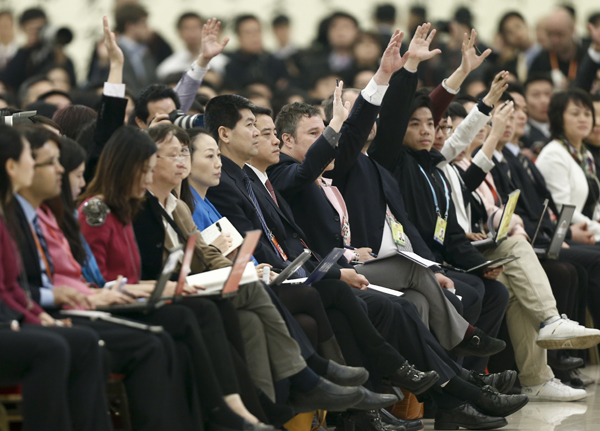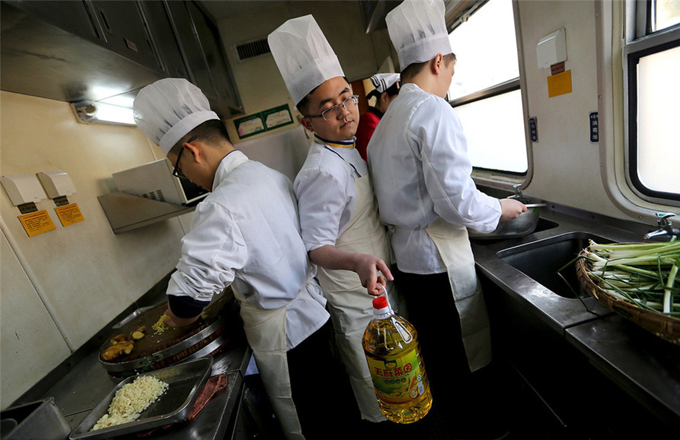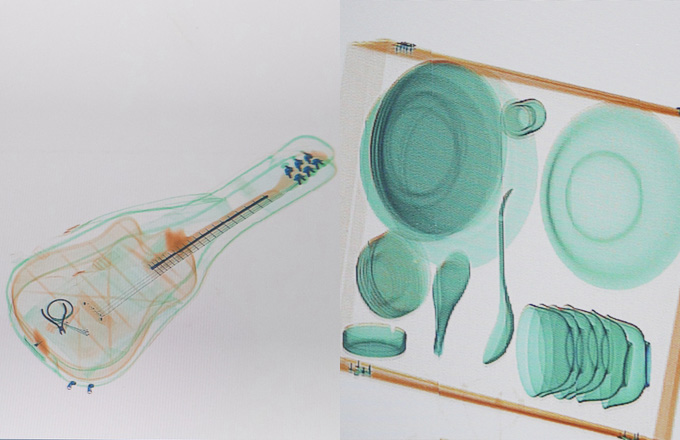With his speech, Li broke the mold
 |
|
Reporters raise questions at Premier Li Keqiang's first media briefing in Beijing. [Photo by Du Yang / China News Service] |
Amid the torrent of rave reviews that poured forth from online denizens in response to Premier Li Keqiang's news conference on Sunday, I added my feeble voice. This caught some by surprise, as my blog on Sina Weibo has a clear focus on cultural issues. But I can argue I did not veer far from my self-delineated sphere of public commentary.
"What a great opening remark! At the risk of sounding obsequious, I'd say this is right up there with the greatest speeches in history, with the likes of JFK's inaugural speech," I gushed.
The JFK comparison is by no means ideal. For one thing, Li's opening remark was shorter than 140 Chinese characters, conjuring up the brevity of Abraham Lincoln's Gettysburg speech. But that was a completely different occasion.
Of course, I'm acutely aware of East-West cultural differences. Chinese speeches usually follow a formula, while English speeches strive for a personal tone. Bon mots and figures of speech are strategically employed. A good speech excels by how it is said as well as what is said.
It's no exaggeration to say that I was blown away by the premier's concise opening. His emphasis on loyalty to the Constitution and to the people raised what could have been a mere formality of words into a statement grand in its ambition yet humble in its wording.
Ostensibly, the 124 Chinese characters do not contain any fancy words or arcane allusions. But the way they were used jolted me instantly, as if the dust over these words were brushed away and their original meanings were shining again. The appearance of "jingwei" (awe) and "jingzhong" (deference) gave the speech a solemnity and a humility, a rare combination on official occasions.
In both word choice and sentence structure, there was a subtle departure from platitudes and a return to the classical Chinese pattern of shorter phrases and more idiomatic expressions. Sentences such as "the people's wishes will point the direction of our government efforts" the original Chinese has an internal rhyme of "wang" and "xiang" yet is not self-consciously poetic awakened me to the beauty of the Chinese language.
In the ensuing question and answer session, the new premier gave a fuller display of his speaking style. It sparkled with homespun wit and sharp insight. Several of his lines turned into memes that spread virally online.
With the new leadership on the podium wriggling free of cliches, it is high time we got ready for Chinese-language speeches that will eventually be enshrined in textbooks.
raymondzhou@chinadaily.com.cn


















